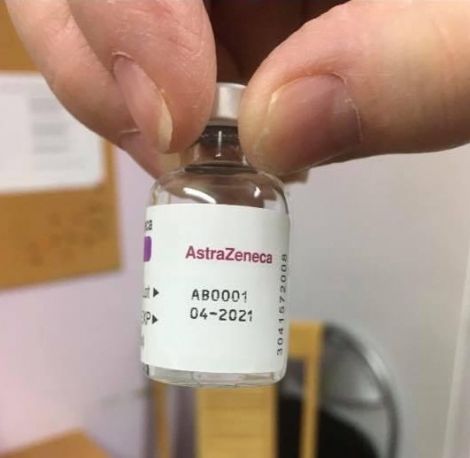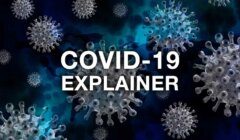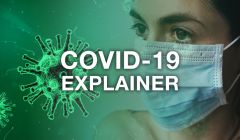Coronavirus / A seismic shift in vaccinology
Annual Covid-19 vaccination booster might be the next step to protect against changing virus
THERE has been quite some information in the press recently about how the virus that causes Covid-19 (SARS-Cov-2) is changing. New SARS-Cov-2 viral variants have been identified in at least three countries including the UK, South Africa and in Brazil.
How does this happen and what does it mean for all of us pinning our hopes to return to a more normal lifestyle? Our regular expert contributor professor Deborah Briggs answers some of the most pressing questions.
Let’s first understand a couple of terms that are associated with changes in one of the most famous viruses that scientists have accumulated significant knowledge about over the past decades, the virus that causes Influenza. The two terms that I want to introduce are: ‘drift’ and ‘shift’.
Influenza viruses can infect many different types of animals, including for example: birds, horses, dogs, cats and, of course, humans. When this happens, the influenza virus sometimes rearranges its genetic material in a small way, and this is known as a ‘drift’ or it can rearrange itself in a big way, and this is known as a ‘shift’.
The World Health Organisation (WHO) has several reference laboratories located in various places throughout the world to collect and analyse the different types of influenza viruses that are circulating in their particular region.
All of this collected genetic information is fed into a data bank and experts in the field of influenza meet at least biannually to discuss how to produce the most effective influenza vaccines to prevent human infection the following year based on what they have learned about the viruses genetic codes.
Generally, but not always, influenza viruses tend to ‘drift’ in their genetic make-up from year to year. When this happens and the virus changes just a little bit from the previous year, a person that has had his or her influenza shot the previous year, may still have some protection against the newer emerging variant of influenza.
Become a member of Shetland News
However, by getting a yearly vaccination for influenza a person will have been vaccinated with the most recent influenza vaccine that has been developed to target the latest identified variants of influenza viruses.
Occasionally, influenza viruses ‘shift’ their genetic material in a big way. When a shift in the influenza virus occurs, it often causes a pandemic. If the genetic shift is significant enough, even a person that has received an influenza vaccine the previous year may not have the right type of antibodies to be protected.
In order to constantly monitor the evolution of influenza viruses and prevent or dampen future a global pandemic of influenza, the WHO established several Influenza Reference Laboratories mentioned above.
Getting back to Covid-19 and the SARS-Cov-2 virus that causes this disease, we can think of the news about the emerging variants from the UK, South Africa and Brazil in the same way as we think about the ‘drift’ and ‘shift’ scenario for influenza viruses that I have described above.
The newly identified SARS-Cov-2 variants from the UK, South Africa and Brazil are not a surprising event and I expect that the researchers that developed the new Covid-19 vaccines were very much aware that this might happen.
The changes identified in SARS-Cov-2 from the UK, South Africa and Brazil have all occurred in the spike protein of the SARS-Cov-2. It is this spike protein, or part of this spike protein, that is included in the current Covid-19 vaccines and causes our immune systems to produce antibodies and protect us against Covid-19. So, what to do about these newly identified varients?
First of all, don’t panic. Everyone that is eligible should get vaccinated. Published clinical data has proven that the Covid-19 vaccines currently licensed in the UK will help to prevent disease from the initial variant identified in the UK as well as the newly emerging UK or ‘Kent’ variant.
More data are being collected on the effectiveness of the Pfizer, Moderna and AstraZeneca vaccines against the South African and Brazilian variant of SARS-Cov-2.
The producers of the Pfizer and Moderna vaccines have both reported that their vaccines produce slightly lower antibody levels against the South African variant and the producers of the AstraZeneca vaccine have released some data that indicates their vaccine will produce lower antibody levels and less effective protection as well.
However, all three of these vaccine producers are collecting more data and, hopefully, we will have more information soon.
The three vaccines currently licensed in the UK were all developed using new technologies that can be relatively quickly adapted for the ‘drift’ and ‘shift’ that will inevitably occur in the SARS-Cov-2 virus. That is reassuring news.
All three manufacturers are working to adapt their vaccine to provide increased protection against the new variants.
As we look to the future, it is highly likely that a more organised global surveillance network will be established for SARS-Cov-2 as it has been established for influenza viruses. This will enable manufacturers to adapt their Covid-19 vaccines to provide the best protection possible, and yes, this would also imply that we would need to get an annual vaccination or booster when new variants emerge.
Finally, I do believe that as difficult as it has been for all of us during the past year, we have been witness to a seismic shift in the future direction of human vaccine development.
Think about it…in less than a year, researchers have been able to use novel vaccine platforms, (such as the mRNA nanoparticle vaccines from Pfizer and Moderna and the viral vector vaccine produced by the Oxford AstraZeneca group), to create new vaccines that are practical in that they can be rapidly adapted to tackle evolving viruses and, hopefully, the inevitable next pandemic.
Professor Deborah Briggs has served as an expert to the World Health Organisation in the field of rabies prevention. She has provided expertise in the field of vaccine production and clinical trials for major pharmaceutical companies and continues to teach an online graduate level course in Global Public Health for Kansas State University. She lives in Bridge End, Burra.
Also from Deborah Briggs:
Become a member of Shetland News
Shetland News is asking its many readers to consider paying for membership to get additional features and services: -
- Remove non-local ads;
- Bookmark posts to read later;
- Exclusive curated weekly newsletter;
- Hide membership messages;
- Comments open for discussion.
If you appreciate what we do and feel strongly about impartial local journalism, then please become a member of Shetland News by either making a single payment, or setting up a monthly, quarterly or yearly subscription.










































































